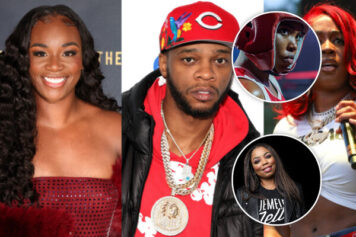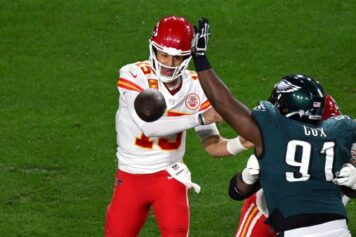This morning, I looked out the window and noticed that it is a particularly sunny day. I glanced through social media and noticed that there’s but the slightest mention of Rodney King or that tragic day that rocked the world. On this day, in 1991, King was savagely beaten by a gang of LAPD officers, all of which happened to be captured in videotape.
Even back then, the same old racist arguments would still occur if someone brought up anything involving black people and abusive law enforcement. ‘He deserved to get beat or else why did he run? Why didn’t just lay perfectly still until the officers properly subdued him? Why do Black people have such an irrational fear of the police?’
Of the aforementioned statements, ‘Why do Black people hate and fear the police?’ has to be among the most frustrating to address.
Recently, while writing a review for the Oscar-nominated documentary “I Am Not Your Negro“, it had occurred to me that police brutality, as well as the justice system’s absolute refusal to prosecute crooked cops, is a static phenomenon in American history.
From the Reconstruction Era raids of terror to the murder of Philandro Castille, U.S. history continually tells individuals of African descent that they do not matter, despite paying taxes, fighting every war ever fought under an American mandate and making thousands of contributions to the overall tapestry of American democracy.
The White majority in America just doesn’t seem to get it.
Back when I still had the energy to explain the evils of racism to seemingly ambiguous White people, and back when I still believed the solution to institutional racism and police brutality had to do with some kind off switch that could be found via legal measures, the Rodney King chase, beating, trial, and subsequent acts of urban insurrections after the acquittal of the officers involved was a true revelation for me.
Back in 1992, I was still in high school. Thus, despite all the signposts that marked the steady oppression of my Black people in America, I was still wishful, hopeful, prayer-full, and perhaps foolish to believe that justice would be served because it was due.

The innocence of a 18 year old doesn’t seem like much when you’re 25. Perhaps because the degrees by which the arc of innocence bends toward knowledge is indiscernible at such young ages, but looking back on it now, my hope in the justice system as a teenage Black American male looks like so much misplaced energy.
On April 29, 1992, just one day after the acquittals officers Stacey Koon, Laurence Michael Powell, Theodore Briseno and Timothy Wind, the city of Los Angeles, California was in flames. Images of angry black mobs searching, roving in locales south of Wilshire Blvd were beamed all over the world. It was curious to see how a nation that judges us to be docile and harmless toward everything and everyone but other black folks suddenly makes us out to be the most vicious creatures to ever walk the face of the Earth via the media.
Now I know that riots are cyclical and are largely spurred by the same thing: white apathy and collusion in the face of institutional racism. We’re expected to simply lay down and get our asses kicked, expected to trust these men, some of whom get a distinct pleasure out of causing black pain and death, and give the United States the benefit of the doubt simply because we were born here.
Though no chronic pain afflicts me nor are my gray hairs numerous, the ages of my children remind me that I am growing older. But the problems remain the same.
Rodney King, though battered within inches of his life, lived. But Eric Garner did not, nor did Philandro Castile, nor did Trayvon Martin.
One day I’ll have to come up with a way to explain to my children that, despite your love for this country, it despises you. I hope to liberate my babies from a lifetime of disappointment with those words.
Because it would break my heart to turn on the television to see my children rioting in the streets; not because I would be embarrassed or angry, but because it would be the ultimate realization of this Ground Hogs Day life that African Americans cycle through whenever another of our sons or daughters lays bleeding out in the street.
It’s not a matter of will another police beating or shooting occur, it’s just a matter of when and where.



